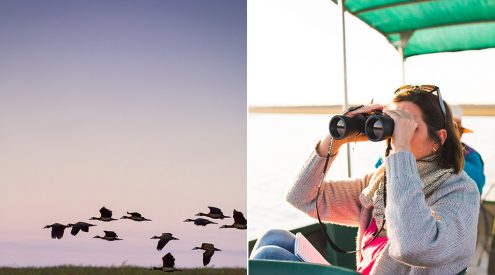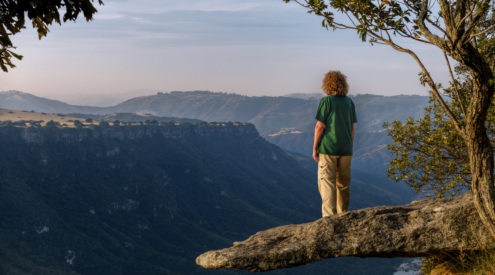Despite beliefs that scientific research data on whales can only be successfully retrieved from the corpse of whales, Conservation Travel Africa (CTA) in partnership with Dr Pierre Gallego, a world-renowned humpback whale marine biologist, is proving otherwise.

Image: Martijn Schouten,
‘As we wrap up World Ocean’s Month, and mourn the death of the humpback whale that drowned in the octopus fishing line off Sunny Cove in False Bay a few weeks ago, we urge marine and whales enthusiasts alike to get involved in our dedicated humpback whale volunteer programme,’ says CTA Marketing Manager Jane Palmer.
The only programme of its kind dedicated to humpback whale research in Africa, CTA’s boat-based Humpback Whale Expedition offers PhD students, marine biology students, post-grads and simply those who are interested in getting practical research experience an opportunity to join experienced marine scientists on a research project in Tofo, Mozambique.
‘The project is easily accessible to anyone passionate about the ocean and who doesn’t have a scientific background,’ says Palmer.
Annually from July to September, hundreds of humpback whales migrate through the waters of Mozambique on their journey from the Antarctic to warmer breeding grounds, going as far north as Tanzania.
Celebrated as one of the world’s top Humpback Marine Biologists, Dr Gallego joins the programme’s teams in Mozambique to gather data for scientific study. This one-of-a-kind project sees volunteers gathering data on population numbers, undertaking behaviour studies, logging individual animals, photo identification, and examining pod structures.
‘Seeing hundreds of humpback whales in the water with their calves is a truly magical experience,’ adds Palmer. ‘Beyond learning about their behaviour and ecology from experts, participants assist in retrieving samples of skin and blubber which is used for studies on genetics, sex and pollutants. A real crowd-pleaser is the recording of the whales’ songs using underwater microphones.’
Fanny Dessard, who attended the project in August last year, commented: ‘Tofo offered me many first times: my first sighting of whale sharks, first swim with dolphins, first dives, first sharks, first humpback biopsies and first steps as a marine researcher! A huge thanks to Dr Gallego and the entire team in Mozambique, it was simply mind blowing!’
Once hunted to the brink of extinction, the global humpback whale population has recovered in recent decades thanks to a moratorium on commercial whaling in 1986. The species is now classified by the International Union for Conservation of Nature (IUCN) as that of the least concern on their Red List of Endangered Species. Populations are thought to be around 60,000 worldwide with the potential for growth. The trend could be reversed however with the resuming of Japanese commercial hunting practices.
For more information on Conservation Travel Africa and their different programmes, visit www.conservationtravelafrica.org
Image source: Martijn Schouten















